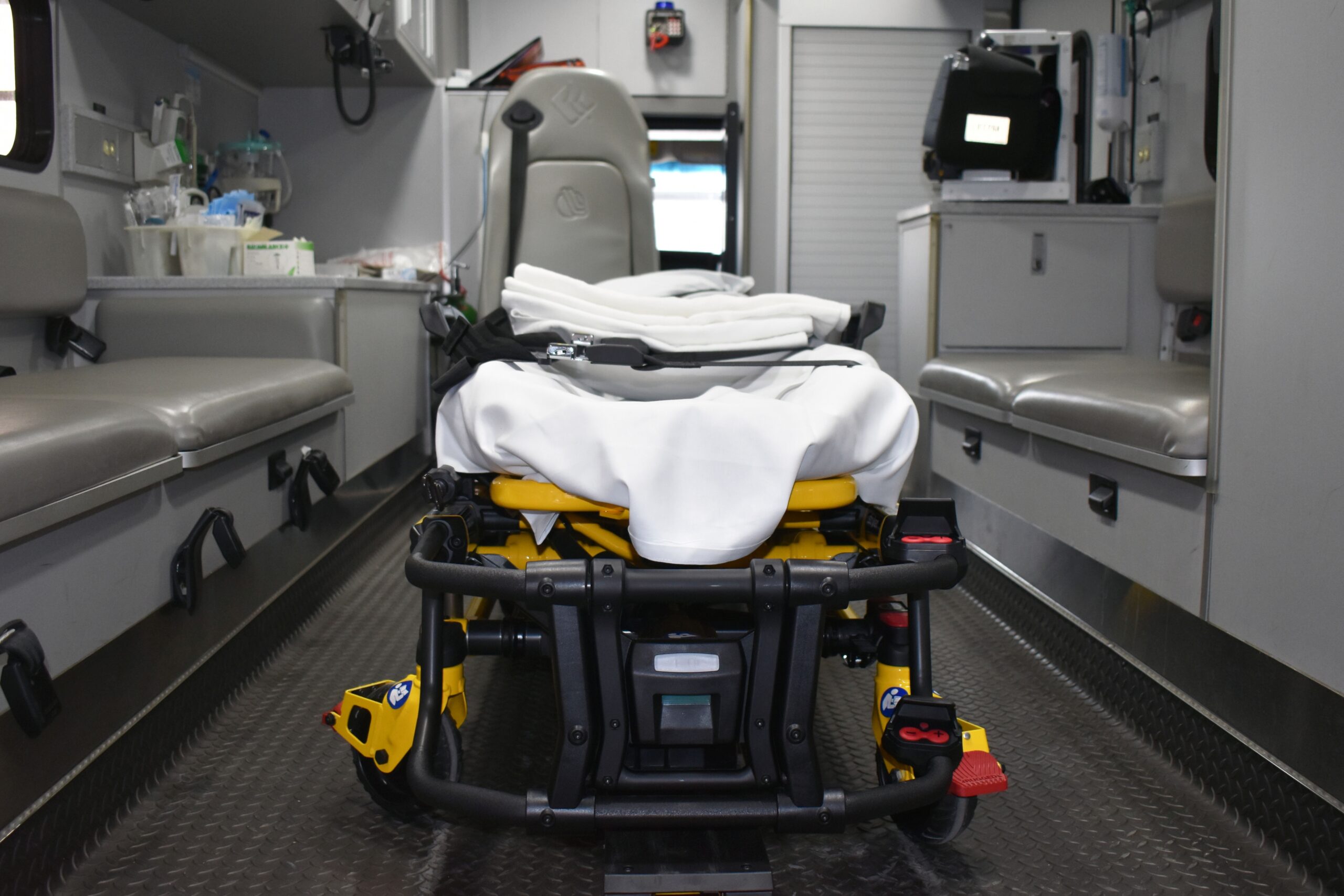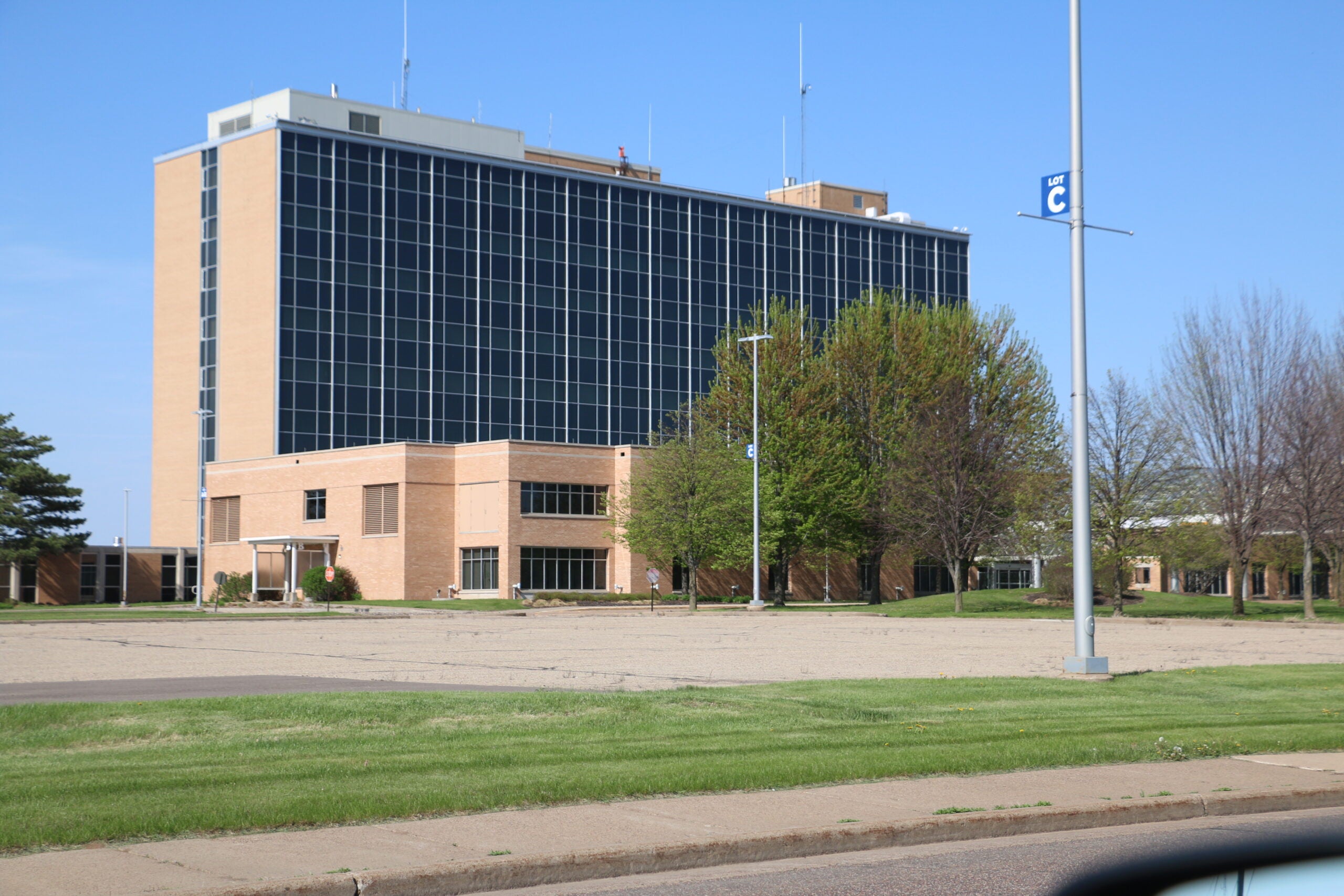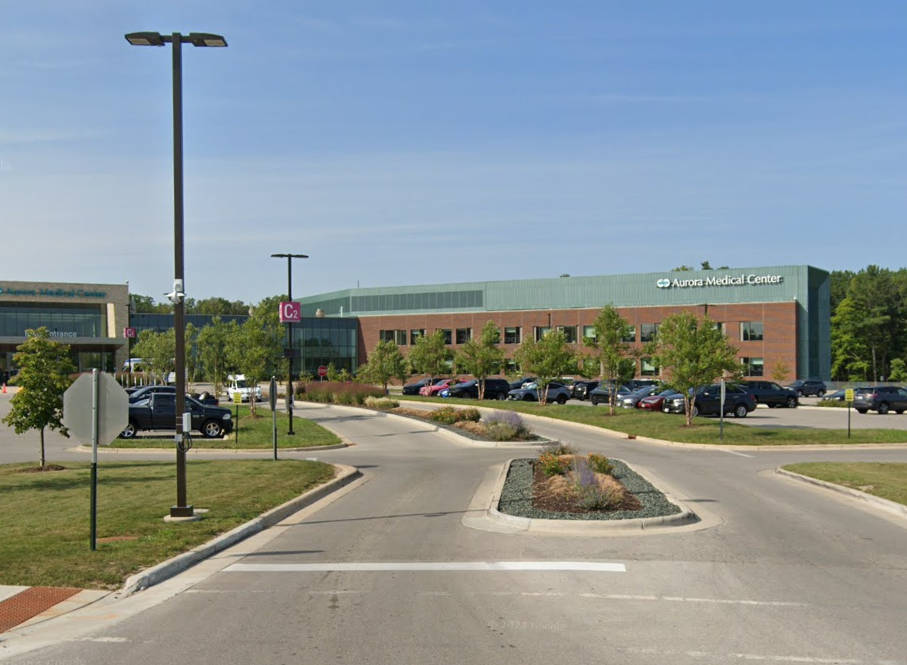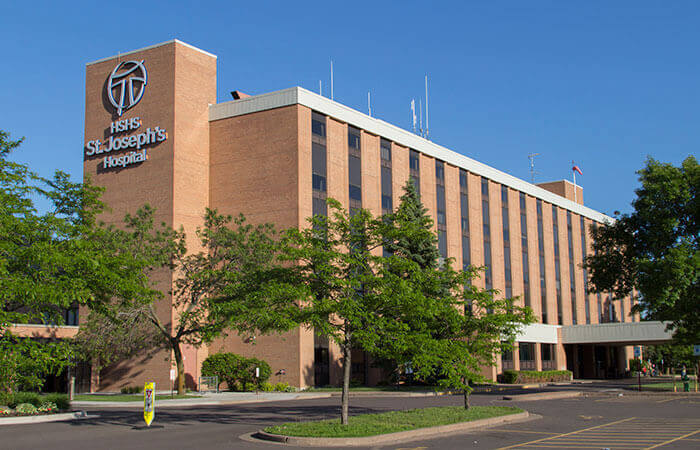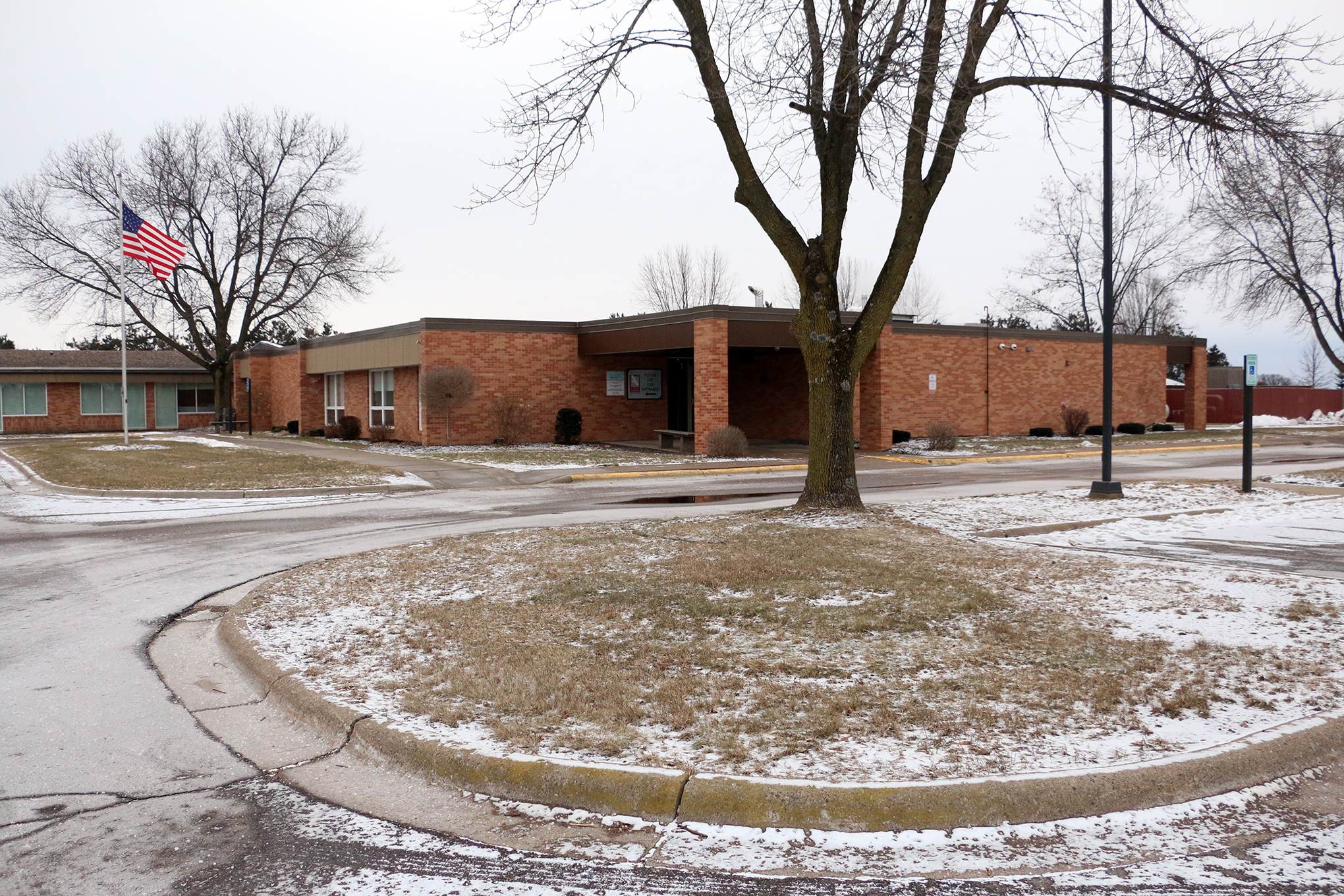Hundreds of patients and staff members will be affected by the closure of HSHS St. Joseph’s hospital in Chippewa Falls on Friday, one of only two hospitals located in Chippewa County.
But Hospital Sisters Health System’s exit from the western Wisconsin region is also causing challenges for a variety of public services.
Chippewa County coroner Ron Patten said St. Joseph’s has served as the county’s primary morgue for at least 50 years. He said the county no longer does autopsies at the hospital, but they do use the morgue to examine bodies and store them.
News with a little more humanity
WPR’s “Wisconsin Today” newsletter keeps you connected to the state you love without feeling overwhelmed. No paywall. No agenda. No corporate filter.
“We have to have somewhere with refrigeration for the bodies that we need to keep for an extended length of time,” Patten said. “Most of our deceased go directly to a funeral home, but occasionally we have bodies that we have to keep for investigative purposes or other reasons, like no one claiming them.”
He said the only funeral home in Chippewa County with refrigerated storage doesn’t have enough space. So Patten said they’ve established a one-year agreement with a funeral home across the county line in Altoona to use their facility while the county works to build their own morgue.
Patten, who also serves as chief of the Boyd-Edson-Delmar Fire Department, said he is worried about how the hospital closures will affect the county’s ambulance services, which are operated through local fire departments like his.
He said emergency rooms in the area are frequently at or near capacity and hospital staff may not be able to handle patients that would have gone to either HSHS location.
“They’re gonna get backed up with people to where our ambulances are going to have to be sitting there waiting or taking care of a patient possibly right at the hospital,” Patten said.
County services face increased costs without local hospital, clinics
County officials say losing the HSHS and Prevea facilities will also have an impact on their budgets.
Tim Esker, director of the Chippewa County Human Services department, said Sacred Heart is the only acute psychiatric facility that accepts children in the region. He said people who are experiencing a mental health crisis and need an emergency detention will have to go to La Crosse, Duluth or as far as Milwaukee. And he said they are not the only county that will be looking to those facilities.
“We’ve got this entire region impacted, potentially 18 counties over here that are vying for those beds,” he said.
He said transporting people farther away is hard on families, costs the county more and requires more hours from law enforcement.
Esker said Chippewa County also had a contract with Prevea Health for a mandatory state program for children up to 3 years old with developmental delays and disabilities.
“We had three therapists that we’re going to have to locate another provider for,” he said, adding that the program serves 80 to 100 families each year.
Leslie Fijalkiewicz, director of the Chippewa County Aging and Disability Resource Center, said she is also worried about running out of funding for their transportation services. She said the county receives a state grant to provide $10 round-trip rides for people over 60 or who have a disability.
Fijalkiewicz said about 20 percent of all rides were to an HSHS or Prevea facility, mostly for dialysis patients receiving treatment three times a week at St. Joseph’s.
She said a ride from somewhere in the county to the Chippewa Falls hospital cost the county about $70. But she said some of those patients will now need to travel nearly 70 miles away for treatment in Medford.
“We’re talking about a single ride that’s going to be subsidized to the tune of $160,” she said. “Our grant is a finite amount of money, so that’s very concerning for us.”
Fijalkiewicz said her agency has gotten calls from individuals who are losing their providers. She said most older adults are resilient after going through other major changes. But she does worry about how the population will be affected by having fewer local services available as they age.
“If somebody lived in a different community and moved to Chippewa Falls to be closer to their dialysis, and now that’s not there, what does that mean?” she said, “If people came to the area so that they could be closer to family that worked in any of these places, what does that mean?”
Wisconsin Public Radio, © Copyright 2025, Board of Regents of the University of Wisconsin System and Wisconsin Educational Communications Board.

